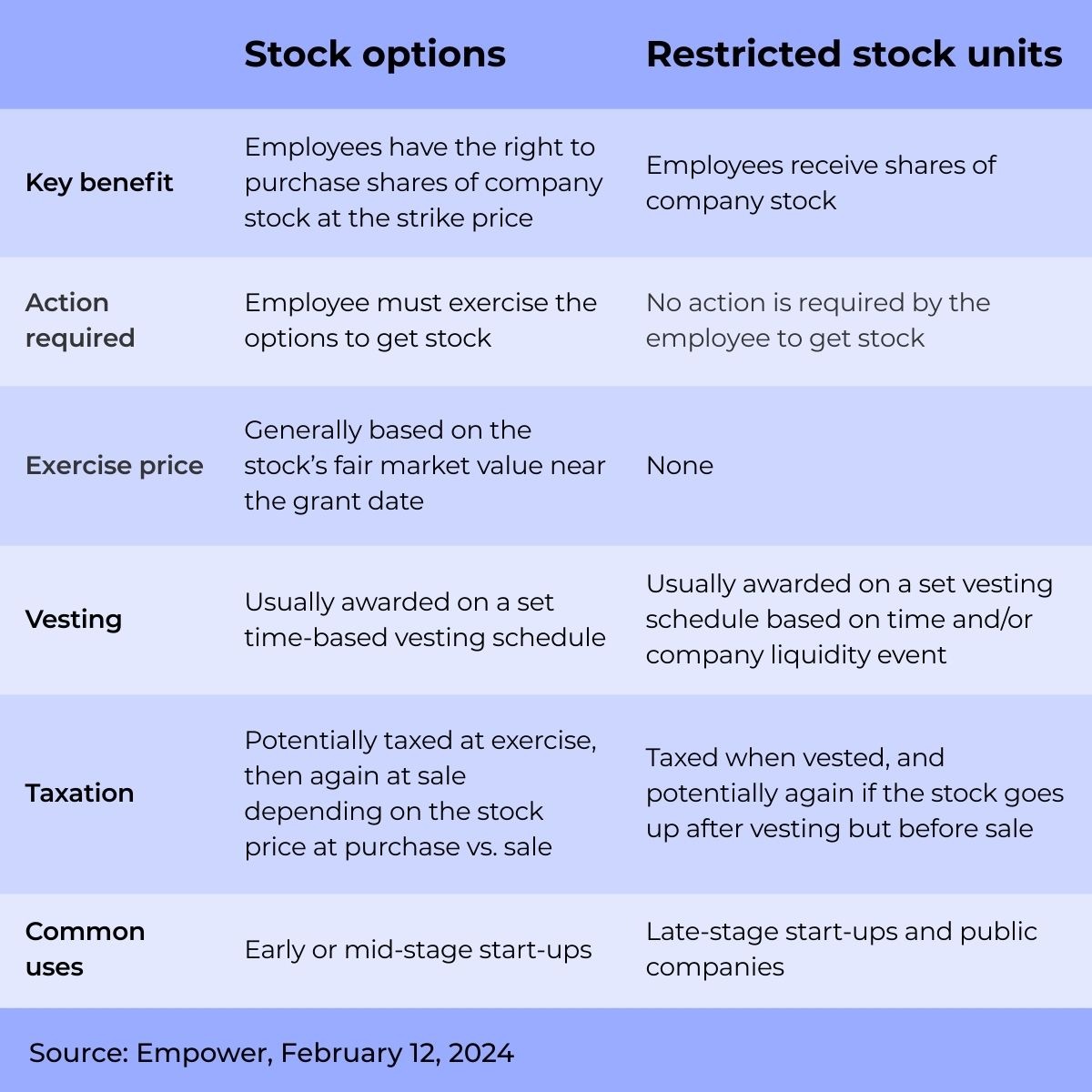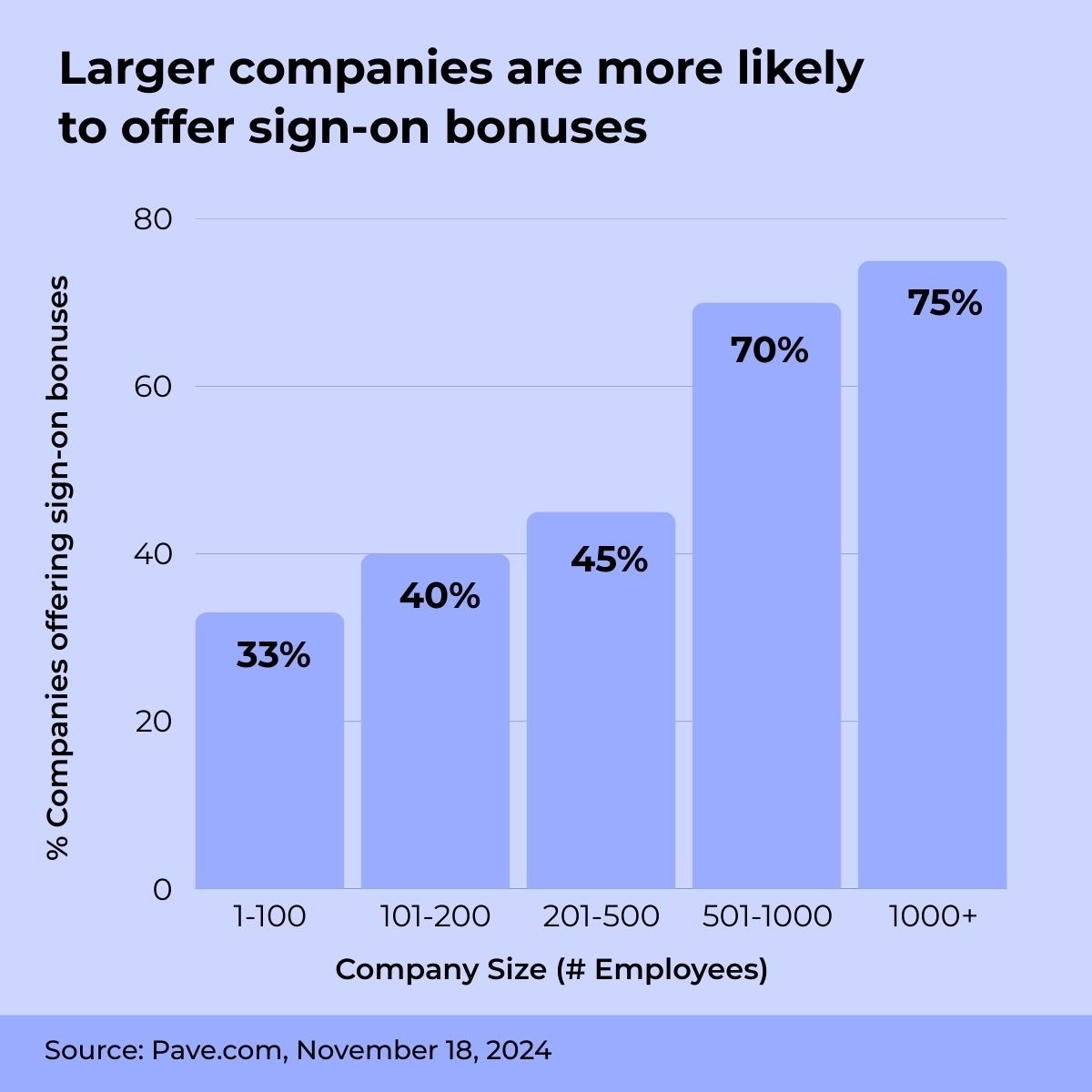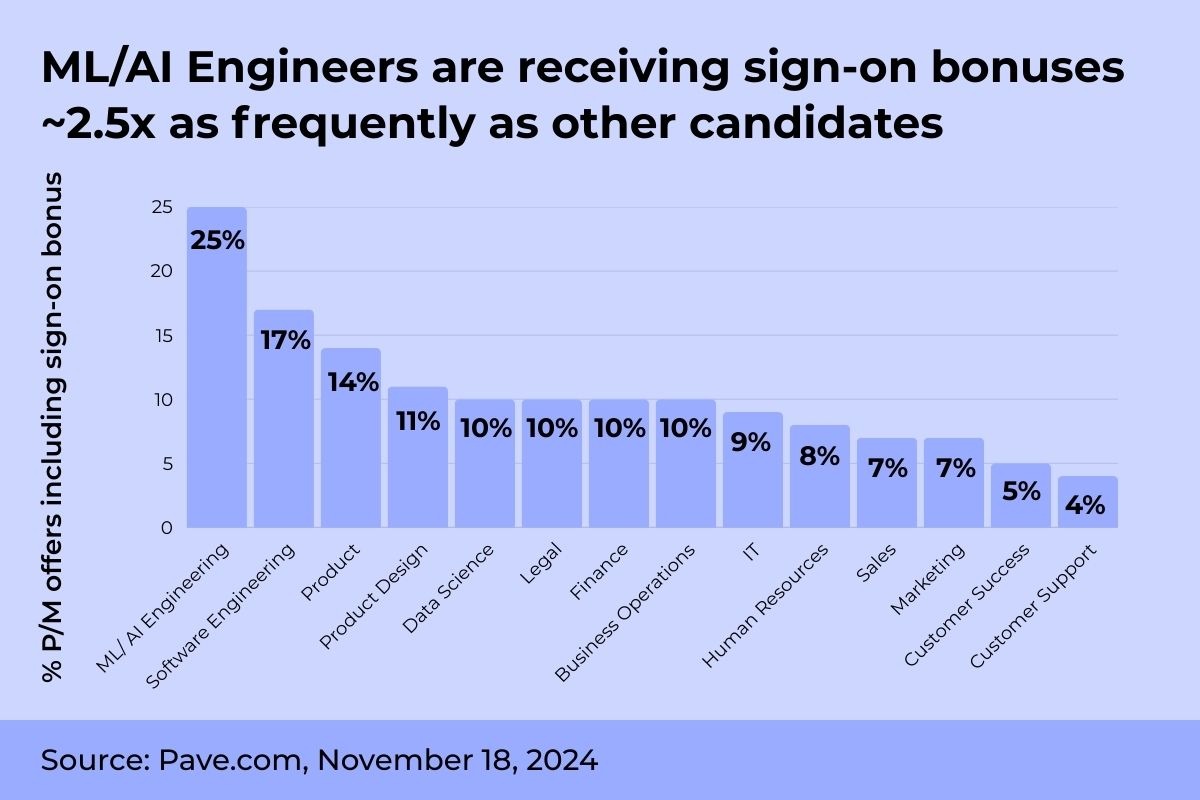
Beyond Salary: Understanding Your Total Compensation
Compensation is more than just a number on a paycheck. Whether you're exploring new opportunities, preparing for a promotion, or evaluating your current benefits, it's important to understand the full value of your total compensation.
From equity and bonuses to benefits, time off, and flexibility, the most valuable aspects of your compensation may not be reflected in base salary alone. For professionals at any stage, especially those in leadership roles or high-demand fields, there might be more room to shape the offer than you expect.
The key is knowing what to ask for, how to assess the trade-offs, and how each component fits into your broader financial and career goals.
The Art of Negotiations
Professionals typically undervalue their bargaining power when accepting a new position. Research shows that only 44% of workers negotiate, despite evidence that most employers expect workers to negotiate their compensation packages and typically prepare budgets for some back-and-forth.1
Most employers have a salary range in mind for the position. Based on your work history and compensation at your previous employer, your salary offer might fall within that range. You can push for the top of the range if you have the experience or a unique skill set.
Career coaches often recommend not jumping at the first offer and suggest making at least one counteroffer.1 Unfortunately, firms can be rigid regarding cash compensation due to a variety of reasons, including budget constraints and strict pay bands.
If they won’t budge on salary, that might not be the end of the negotiation. Instead, you may want to pivot, acknowledge the salary “is what it is,” and then start discussing additional non-salary benefits.
Hiring managers may have more flexibility in doling out these types of “perks,” so don’t be too shy to ask! Before you make any requests, career coaches suggest emphasizing your enthusiasm for working at the company. This can help establish a positive tone for the upcoming negotiation.
Which Benefits Can Be Negotiated?
Negotiable benefits include a better title, equity, remote and/or flexible work schedules, sign-on bonuses, relocation assistance, additional healthcare benefits, and more paid time off.
While we are not career-coaching professionals, and every circumstance is different, let's take a high-level look at each of these potentially negotiable benefits.
Better Job Title2
Some people and organizations don’t pay much attention to job titles. For others, they are extremely important. A job title defines your role in the professional environment, indicating your specialty or rank in the company hierarchy.
Once you've received a job offer, you may not be satisfied with the title that goes along with it. Getting a better title can help increase your comfort in the job you accept and impact your professional connections, as well as your future job prospects.
Before you determine whether to push for a title change, you may want to conduct some research on the company’s culture to see how much weight is given to titles. You also may want to learn how your industry refers to professionals in the same role so you can go into the discussion armed with facts.
Equity: Stock Options and Restricted Stock Units3
Equity compensation is a type of non-cash compensation that certain companies may offer their employees, especially executives and senior staff. Equity compensation can give an employee either direct shares in the company or the right to purchase shares.
As with other parts of the package, equity, if offered, might be negotiable.
Equity can come in the form of stock options or restricted stock units (RSUs), so it's important to know the difference between the two.
Stock options give you the right—but not the obligation—to purchase a set number of company shares at a specific price, known as the strike price, after a defined waiting period called the vesting period.
Think of it like this: If your company stock increases above your strike price, your options have value—you can buy at a lower price and sell at a higher one. But if the stock price stays below your strike price, your options could end up “underwater” and may not be worth exercising at all.
Key features:
- Provide the right (but not the obligation) to buy company shares at a fixed “strike price”
- Only have value if the stock price exceeds the strike price
- Typically vest over several years (e.g., 25% per year for four years)
- Become liquid when you exercise the option and sell the shares (this requires a buyer or market)
- Might be taxed at exercise (for non-qualified stock options), with any future gains taxed at sale (either short- or long-term capital gains, depending on holding period)
- May be granted by private companies, but liquidity usually requires a future event, like an IPO or acquisition
Because options are only valuable if the stock price rises, they create strong incentives to help grow the company’s value.
Restricted Stock Units (RSUs) represent a promise to give you company shares once certain restrictions are lifted, usually tied to time (like staying at the company) or performance goals. Unlike options, RSUs don’t require you to buy anything. Once they vest, they’re yours.
Key features:
- Grant shares outright after vesting — no purchase required
- Vesting may be based on time, performance goals, or both
- Taxed as ordinary income at vesting, based on the share value at that time
- If you hold the shares after vesting, any additional gain is taxed at capital gains rates (long-term if held for 12+ months)
- May be issued by private companies, but shares often can’t be sold until a liquidity event occurs
RSUs are essentially stock bonuses, and companies often favor them because of their simplicity, lower volatility, and favorable accounting treatment.
Pro Tip: If you are considering a position in which stock options or restricted stock units are part of the compensation package, a professional may help you assess their value. After some initial work, a tax, legal, or accounting professional can start to explain any future tax implications.
While stock options and RSUs have similarities, they also have quite a few differences, as detailed in the table below.

Being offered equity can be a terrific perk. At the same time, if a company’s fortunes turn negative, your equity can wind up being of little or no value.
Remote Work and/or Flexible Schedules
For many people, the value of remote work goes beyond convenience. It can save thousands of dollars annually in commuting costs and give you absolute control over your work environment and when you work.
The COVID-19 lockdowns changed the perception of remote work and flexible schedules. While some firms have gone back to a pre-pandemic policy, many allow for more flexibility, only requiring workers to come into the office a few days a week, if at all.
Before accepting an offer, you should understand the company’s policies and negotiate where possible if working outside the office or at different hours is important to you.
Sign-On Bonuses4
Sign-on bonuses are a form of cash compensation that a firm can offer in addition to a base salary. Up-front bonuses can make a difference in tight labor markets, in which companies find it hard to recruit the talent they need. As with other aspects of compensation, a sign-on bonus can sometimes be negotiated. If nothing else, it doesn't hurt to ask.
How common are sign-on bonuses? It depends.
According to one recent study, more mature, later-stage companies are more likely to offer sign-on bonuses. Only 33% of small companies (under 100 employees) offer sign-on bonuses, while 75% of large companies (1001+ employees) use this perk.

The likelihood of being offered a sign-on bonus also may depend on your job function. If you are being hired to fill an in-demand role, you will be well-positioned to ask for and receive a bonus. Machine learning and artificial intelligence engineers are at the top of the list regarding sign-on bonuses, followed by software engineers.
If you are considering a position with a sign-on bonus, we would encourage you to speak with your tax, legal, and accounting professionals. They can help you assess whether you might need to adjust your tax strategy when accepting this one-time payment.

Relocation Assistance
If you need to relocate for a new role, many companies will help cover moving expenses, temporary housing, and travel costs as part of your package. Be sure to discuss the details and negotiate wherever necessary. Moving to a new city can be stressful enough, so your new company should be willing to pay accordingly to ease the transition.
You should review any relocation package to see if it covers the following:5
- Packing service
- Moving company and insurance coverage
- Home-selling assistance
- Paid-for house-hunting trip
- Temporary housing
- Auto travel reimbursement
- School relocation assistance for children
- Temporary storage for household items that cannot be transported immediately
Healthcare Benefits1
Healthcare can be a major expense, making medical benefits a key component of your total compensation. While most companies will have a standard plan for employees, they may have some flexibility in what they are willing to offer, especially for more senior positions. You may be able to negotiate for premium health insurance plans with lower deductibles, vision, and dental coverage, or even gym memberships.
You may want to research the standard company health plan offering and consider your needs and those of your family. It may be worth discussing to see if you can get a better plan.
Additional Vacation or Paid Time Off1
Extra vacation or paid time off (PTO) can enhance your work-life balance and overall job satisfaction. As a productivity-enhancing perk, some companies are open to offering more paid time off, sabbatical options, or even unlimited vacation policies. On the other hand, some companies have a policy of not being generous with time off. You should determine the culture before requesting more vacation or PTO.
Employers tend to have more flexibility with vacation policies than with other financial perks. If you are underwhelmed by the salary offer, getting additional time off can make the overall compensation package more balanced.
Preparing for Negotiations
Being prepared is key to a successful negotiation with a potential employer. Here are some general guidelines that may be helpful.1
- Understand Market Data: Using widely available online tools like PayScale, Levels, and Glassdoor can help you benchmark your role and industry to determine the appropriate salary level for your skills and experience.
- List Priorities: Identify what components of the compensation offer matter the most to you – salary, flexibility, or equity – and focus your negotiation on these elements.
- Competing Offers: Soliciting multiple offers provides you with leverage. Depending on how the negotiations are going, you can always pull these indicators of interest out of your back pocket.
- Script Yourself: Not everyone is a natural negotiator. One way to help achieve the best outcome is to build a detailed script of what you plan to say, along with solid arguments. Some websites can help you script out your entire negotiation. Consider using one of them.
- Anticipate Pushback: As part of your scripting, prepare counterarguments for the usual objections. Experts we’ve read say to expect two rounds of back-and-forth for every ask.
Common Negotiating Mistakes to Avoid
Negotiating your compensation package before accepting a job offer is necessary for your well-being and is usually expected by the hiring manager. But common mistakes can start this new phase of your career off on the wrong foot. Here are a few to avoid:1
Mistake #1: Accepting the First Offer – If you’ve ever bought a car, you know the first offer is rarely the best. You should always consider making a counterproposal.
Mistake #2: Getting Emotional – Emotions are never a good look in a professional setting. You must stay calm, cool, and collected throughout the negotiation, regardless of how it goes and what you may feel inside.
Mistake #3: Neglecting Research – As Ben Franklin supposedly said, “By failing to prepare, you are preparing to fail.” Going into a negotiation unprepared makes you vulnerable to low offers.
Mistake #4: Selfish Presentation – Don't come across as selfish or greedy. A successful negotiator will try to present demands as a win-win for all involved.
Mistake #5: Not Getting It In Writing – Once you’ve concluded your negotiations, you should ask for a formal offer letter that includes all the agreed-upon terms. This can avoid misunderstandings and potential problems down the road.
For many professionals, compensation goes far beyond a paycheck. From stock options and RSUs to flexibility, bonuses, and benefits, your total compensation package can have a lasting impact on your long-term financial picture. Yet the fine print is often misunderstood—or overlooked entirely.
Understanding these components isn’t just helpful during a job transition. It’s essential at every stage of your career.
Whether you’re evaluating an offer, preparing for equity-related tax strategies, or simply want your benefits to align with your financial goals, we’re here to help. It’s part of the broader conversation—one that connects your work today with the future you're building.
1 CareerInsiders.org, April 2025
2 Indeed.com, February 20, 2025
3 Empower.com, March 12, 2024
4 Pave.com, November 18, 2024
5Indeed.com, March 3, 2025

